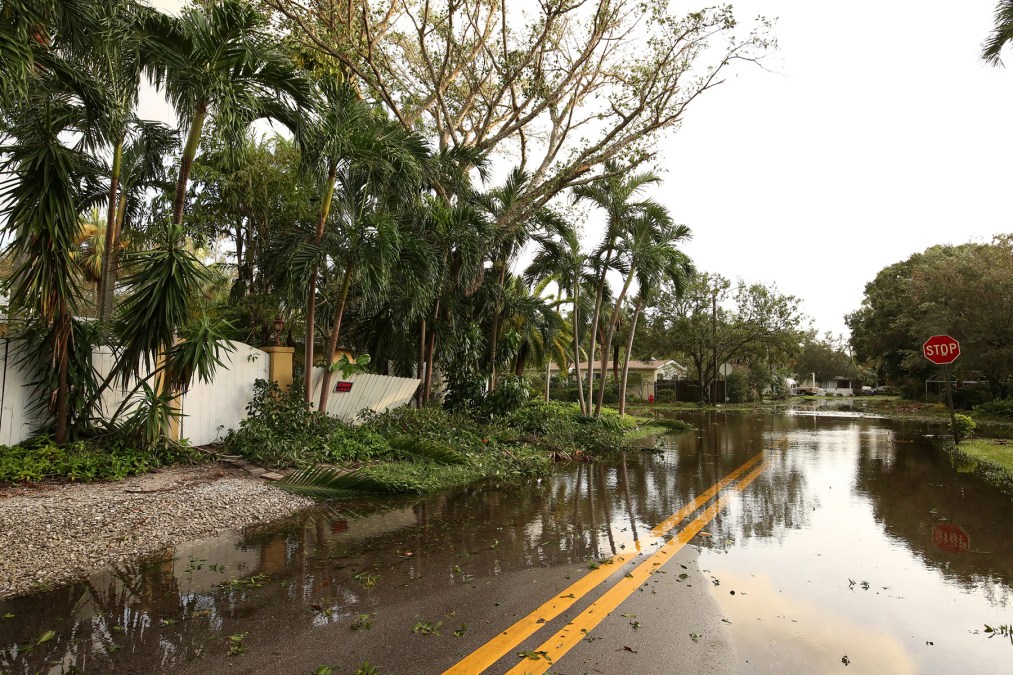Rise in natural disasters should push more local governments toward cloud computing, expert says

An increase in devastating natural disasters should be a driving factor for municipal government leaders considering a transition to the cloud, according to officials speaking at an event in Washington D.C. on Monday.
Hardening infrastructure and securing data by storing it in the cloud are two strategies that agency leaders can use to ensure quick recovery of critical systems in the event of a disaster, said Angelina Panettieri, a federal technology and communications lobbyist at the National League of Cities.
Panettieri represented the NLC on a panel presented by the Public Technology Institute and organized through DC CloudWeek, a weeklong festival hosted by StateScoop’s sister publication, FedScoop. The other panelists — who represented Fairfax County, Virginia; Montgomery County, Maryland; and Baltimore, Maryland — shared that cloud computing is as much about management as it is about technology.
Panettieri, who works with federal lawmakers to appropriate funds for technology investment in local government, said that the uptick in natural disasters is a key motivator for municipal leaders expanding their cloud storage.
“We handle everything related to local governments, not just technology, and within the last year or so, as we’ve started to see a rise in extremely devastating hurricanes, longer and more destructive wildfire seasons, we’ve seen local governments really looking at what they need to do to improve their ability to communicate with constituents during a disaster,” Panettieri said.
What’s necessary before a cloud transition, she said, is a strong broadband connection, another aspect of technological infrastructure that rural communities struggle with. A recent report from BroadbandNow revealed that municipalities are struggling more than ever to establish locally-owned broadband.
Jet Lu, who is overseeing GIS data for Baltimore while the city searches for a new chief data officer, said his department’s cloud strategy is to centralize the city’s IT teams before taking procurement action. He’s also helping guide Baltimore’s “multi-cloud” support, which means that the city uses two or more cloud solutions.
In some places, a push for cloud computing has caught administrators off-guard, natural disasters notwithstanding.
“We had no idea the bottom-up swell for cloud computing would be as big as it is [five years ago],” said Sonny Segal, chief information officer for Montgomery County, Maryland.
With local government’s reliance on critical data and systems, Panettieri said cloud computing should appear an attractive option, but one that comes with hurdles.
“A lot of communities can’t look at this as an option if they don’t have the broadband infrastructure they need to take advantage of it, realistically. There’s infrastructure hardening that’s necessary for any of this to be viable, and that infrastructure redundancy, so that people aren’t just one fiber cut away from the stone age,” Panettieri said.
Panettieri said she knew of one municipal association that lost a building in a fire that, prior to a cloud transition, would have burned on-premise servers and valuable data.
“The year previously, they’d moved most of their functions to a cloud-based system, and it became a very interesting case study for other associations and governments looking at how you come back from that degree of destruction, and being able to distribute the workforce, have people work remotely and still continue on with no interruption of services for, in their case, members, but in the case of a local government, residents,” she said.
Panettieri’s case for the cloud is shared by Federal Communications Commissioner Jessica Rosenworcel, who tweeted on Monday that the nation’s communications infrastructure isn’t ready for hurricane season and that the federal government must do more to protect broadband connections for public safety agencies that rely on them during emergencies.




